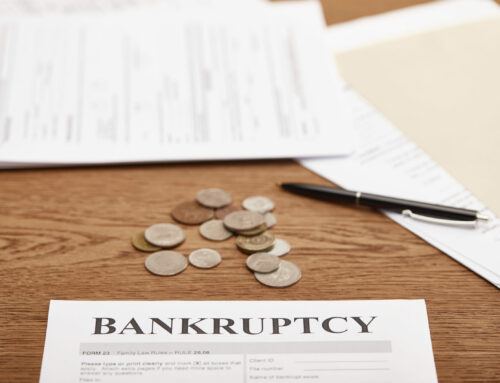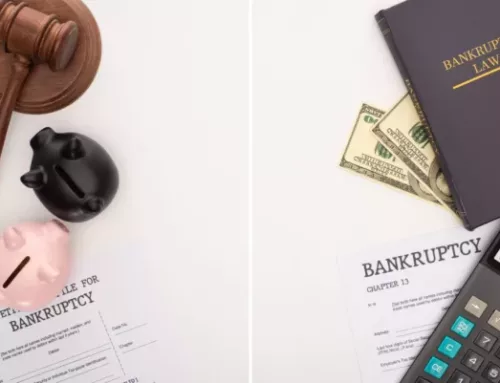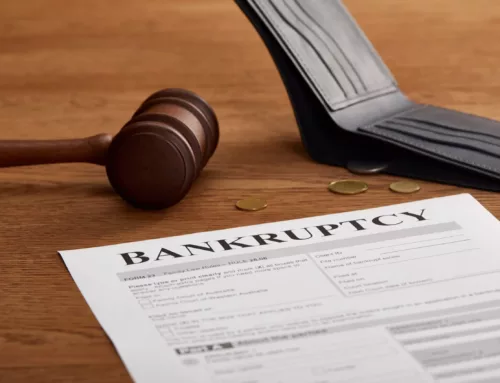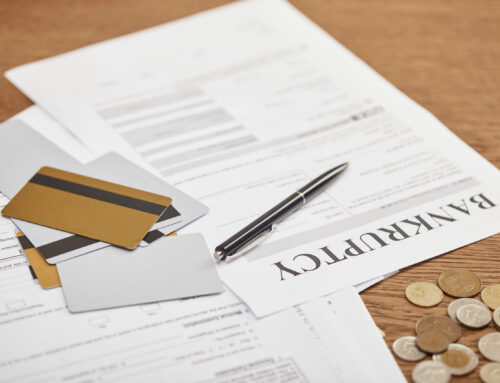Find Out If Bankruptcy Can Free You From Your Tax Liabilities
Bankruptcy is a legal process that provides individuals and businesses overwhelmed by debt with a way to seek relief and potentially eliminate or restructure their financial obligations. Yet, among the concerns that arise when considering bankruptcy, a crucial question lingers: Will the filing of bankruptcy discharge your tax debt?
In Mississippi, the question of whether bankruptcy will discharge tax debt depends on various factors and specific rules set forth by both federal and state laws. While bankruptcy can potentially provide relief from certain tax liabilities, it’s essential to consult with our Jackson bankruptcy attorneys at The Rollins Law Firm who can help you understand the criteria and limitations involved. We can evaluate your specific financial situation and tax debt to determine if bankruptcy is the best option for discharging your tax liabilities.
In this article, we will look into the factors that determine whether bankruptcy can discharge your tax liabilities.
- Dischargeable vs. Non-Dischargeable Tax Debts
- Criteria for Dischargeability
- Chapter 7 Bankruptcy and Tax Debt Discharge
- Chapter 13 Bankruptcy and Tax Debt Repayment
Dischargeable vs. Non-Dischargeable Tax Debts
When considering bankruptcy as a potential solution for your tax debts, it’s crucial to understand the distinction between dischargeable and non-dischargeable tax obligations. Knowing which type your tax debt falls under is essential in determining the potential relief bankruptcy may offer.
Dischargeable Tax Debts
Dischargeable tax debts refer to those that can potentially be eliminated through bankruptcy. Generally, income tax debt is eligible for potential discharge.
Non-Dischargeable Tax Debts
Non-dischargeable tax debts, on the other hand, cannot typically be eliminated through bankruptcy. Examples of non-dischargeable tax debts include:
- Recent income tax debts that do not meet the timing requirements
- Payroll taxes or trust fund taxes withheld from employee’s wages
- Tax liens filed against your property before filing for bankruptcy
- Tax debts resulting from fraudulent tax returns or willful tax evasion
Criteria for Dischargeability
Bankruptcy laws establish specific criteria that must be met for tax debt to be considered dischargeable. Meeting these criteria is essential for determining the potential relief bankruptcy may offer. Our Jackson bankruptcy lawyer can help explain the key factors that impact the dischargeability of tax debt in bankruptcy proceedings.
Timing Requirements
The tax debt must relate to income taxes and have become due at least three years before filing for bankruptcy. This time requirement ensures that the tax liability is not recent and allows for a fair evaluation of dischargeability.
Filing Requirements
It is crucial to have filed a legitimate tax return for the specific debt at least two years before filing for bankruptcy. Meeting this requirement demonstrates good faith in fulfilling tax obligations.
Assessment Date
The tax liability must have been assessed by the taxing authority at least 240 days (approximately 8 months) before filing for bankruptcy. Certain circumstances, such as previous bankruptcy filings or offers in compromise requests, can extend this assessment period.
Chapter 7 Bankruptcy and Tax Debt Discharge
Chapter 7 bankruptcy typically works well for people who have a low income and little to no assets. Also known as liquidation bankruptcy, this process involves a court-appointed trustee liquidating the debtor’s nonexempt assets to pay creditors. After all the proceeds have been used, the remaining liability is discharged.
Before filing for Chapter 7 bankruptcy, individuals must pass a means test to determine their eligibility. The means test compares your income to the median income in your state and evaluates your ability to repay debts. If your income falls below the state median or you demonstrate insufficient disposable income, you likely qualify for Chapter 7 bankruptcy.
This type of bankruptcy offers the potential for the discharge of eligible tax debt. If you meet the specific criteria, Chapter 7 bankruptcy can provide a fresh start by eliminating qualifying tax liabilities entirely. This relief can alleviate the financial strain caused by tax debt, allowing you to move forward with a clean slate.
Chapter 13 Bankruptcy and Tax Debt Repayment
Chapter 13 bankruptcy, also known as “reorganization” bankruptcy, is a legal process that allows individuals with a regular income to create a repayment plan to address their debts over three to five years. Higher-income earners often opt to file for Chapter 13 bankruptcy.
This type of bankruptcy allows you to retain your assets, such as your home or car, as long as you continue making the required payments outlined in the repayment plan. It provides an opportunity to catch up on missed payments and prevent foreclosure or repossession. At the successful completion of the repayment plan, any remaining eligible debts are typically discharged. However, certain debts, such as child support, alimony, most tax obligations, and certain types of student loans, may not be dischargeable.
While Chapter 13 bankruptcy does not typically discharge tax debt, it provides an opportunity for debt reorganization and repayment. Under Chapter 13, a debtor establishes a repayment plan spanning three to five years, during which a portion of the tax debt is repaid. This structured approach enables debtors to manage their obligations while keeping their assets intact.
How Can a Jackson Bankruptcy Lawyer Help You Determine If Bankruptcy Will Discharge Your Tax Debt
Determining whether bankruptcy will discharge your tax debt depends on various factors. Understanding the eligibility criteria for tax debt discharge is vital. Factors such as the type of tax owed, the timing of the debt, compliance with filing requirements, and the assessment date play a crucial role in determining dischargeability.
Our Jackson bankruptcy attorneys at The Rollins Firm can evaluate your tax debt situation, navigate the complexities of bankruptcy laws, and provide personalized guidance based on your specific circumstances. We will help determine the potential relief bankruptcy may offer and guide you through the process, from preparing the necessary documentation to representing your interests.
By working with our bankruptcy law firm, you can gain clarity, explore available options, and pursue the best possible outcome for discharging your tax liabilities through bankruptcy. Your journey towards a debt-free life starts now. Contact us now to schedule a free consultation and let us help you obtain the financial freedom you deserve.








Connect with Us